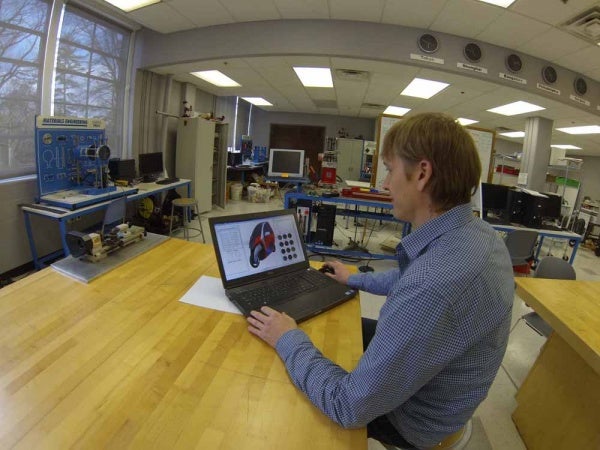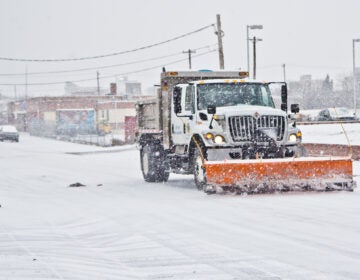Phila U. team develops self-balancing, electric motorcycle
Philadelphia University student Ken Reita is taking his Master’s project to the street.
The industrial design student is creating a self-balancing electric motorcycle, which he says will act as an efficient and eco-friendly alternative to gasoline cars. The vehicle will use batteries and an electric motor to run, instead of depending on a gasoline engine.
The one anticipated disadvantage of creating an electric motorcycle would be the heavy battery on board. But Reita, along with two other Philadelphia University students, came up with a solution: use a second electric motor to spin the reaction wheel battery pack, allowing the vehicle to self-balance as it comes to a stop.
Reita says the cost to operate the vehicle when charged through a residential power grid would be comparable to operating an equivalent gasoline powered vehicle that could achieve 175 to 200 miles per gallon.
The students are also installing a space to store grocery bags, purses, briefcases, laptops, etc. The vehicle comes equipped with a lightweight roof and doors that are removable for open-air riding.
“You can use it in rainy or sunny weather,” Reita says. “It’s a commuter vehicle — a second car.”
MBA student Howard Fang is working on the business plan and detailed analysis of the project, while Reita is designing the vehicle configuration, styling, and human interface. Corey Phillips, the mechanical engineer of the group, is building the scaled working prototype that will be showcased at their final presentation on April 30.
The three students have invested $600 out of their own pockets thus far, and expect to spend around $1,400 by the end of the project.
Tod Corlett, Associate Professor of Industrial Design at Philadelphia University, estimates that it will take “a couple hundred thousand dollars to get this to the point where we have a real working prototype. But the point of the project was to get it to the point where all it’s lacking is the resources.”
WHYY is your source for fact-based, in-depth journalism and information. As a nonprofit organization, we rely on financial support from readers like you. Please give today.












